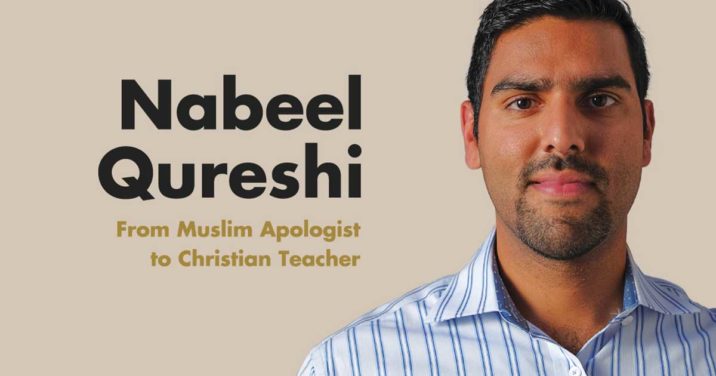The November/December issue of Bible Study Magazine features Nabeel Qureshi—bestselling author of Seeking Allah, Finding Jesus.
Qureshi was raised in a close-knit Pakistani-American family devoted to Islam—so when he became convinced of the truth of the Bible and the claims of the Christian faith, he knew everything would change. “I knew from studying the Gospels that I was called to give up everything. Jesus says in Matthew 10, ‘He who loves his father or mother more than me is not worthy of me.’ ”
In Jessi Strong’s interview with Qureshi, he opened up about the role of apologetics in his conversion to Christianity:
While in college and medical school, one of Qureshi’s Christian friends challenged him to examine the Bible more seriously to see if its claims could be verified. It took years, but he began to respect the Bible as a historical document—even before he recognized Jesus as God. “We know through biblical archaeology that some of the things Luke mentioned were not corroborated until archaeological digs confirmed them. I came to the conclusion that they had compelling historical truths. I researched textual transmission, wanting to find out if what the Bible says today is what the Bible has always said. We have so many manuscripts of theNew Testament in ancient Greek that we can be very confident in our reading of its text. Understanding the nature of the evidence began to change my perspective on the reliability of the Bible.”
As his respect for the Bible grew, Qureshi began to look more closely at the Gospel of Mark’s claims about Jesus. “Muslim apologists will usually say that Jesus claimed to be the Messiah, but he didn’t claim to be God. They expect Jesus to identify himself using certain words. It’s not a bad expectation, given how God identifies himself in the Old Testament. In Isaiah 45:22, for example, God very powerfully says, ‘I am God, and there is no other.’ When he meets Moses in Exodus 3:14, Moses asks him who he is, and God says, ‘I am that I am’—in other words, ‘I eternally exist.’ ”
Qureshi’s studies in Mark convinced him that the oldest of the Gospels is fundamentally about the deity of Christ. “The climax of Mark’s Gospel is Mark 14:62, when Jesus is asked to publicly proclaim his identity. ‘Are you the Christ, the son of the Blessed?’ asked the high priest. And Jesus responds by saying, ‘I am, and you will see the Son of Man seated at the right hand of Power and coming with the clouds of heaven.’ It’s so important that we know our Old Testament because in this one verse Jesus responds by referring to at least two passages. The first is Psalm 110:1: ‘The Lord says to my Lord: Sit at my right hand, until I make your enemies your footstool.’ His response also references Daniel 7:13, where Daniel sees a vision of ‘one like the son of man, and he came to the Ancient of Days and was presented before him. And to him was given dominion and glory and a kingdom.’ When we read Jesus’ statement in context with those Old Testament passages, we see him saying, ‘I am the God of Daniel. I am the God of David.’ Once I saw that, I realized what I had been taught about Christianity was false. Even in the earliest records, Jesus had claimed to be God.”
* * *
Subscribe to Bible Study Magazine today.





